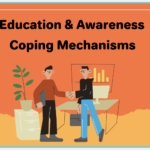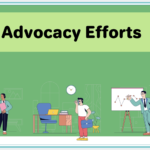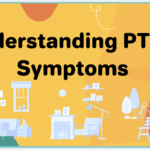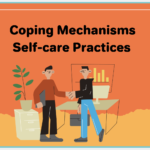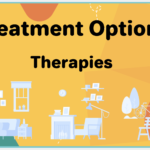Meditation is a mental practice that involves focusing the mind to achieve a state of calm and relaxation. This technique, which has been used for centuries, has recently gained recognition for its profound benefits, especially for individuals facing significant stress and anxiety—such as UK military veterans. As veterans transition back into civilian life, they often encounter challenges related to mental health, including post-traumatic stress disorder (PTSD), depression, and heightened anxiety. These issues can be mitigated through regular meditation practice.
The practice of meditation promotes mental clarity and emotional resilience, assisting veterans in processing their experiences and emotions. Engaging in mindfulness allows individuals to observe their thoughts and feelings without judgment, fostering greater self-awareness. This self-awareness is crucial for veterans who may grapple with the scars of combat and the stress of reintegration into society. By cultivating a mindful approach to their thoughts and experiences, veterans can reduce symptoms of anxiety and stress, thereby improving their overall mental health.
Additionally, meditation enhances focus and concentration, skills that are essential for veterans aiming to adapt to civilian lifestyles. The calmness achieved through guided sessions not only elevates mental clarity but also promotes better decision-making and emotional regulation. Therapeutic meditation techniques tailored for veterans can incorporate elements such as deep breathing, visualization, and body scans, which are specifically designed to help combat the invisible wounds of war.
Integrating mindfulness practices into daily routines can significantly benefit veterans, providing them with tools to manage stress and improve their quality of life. As such, meditation stands out as an accessible and effective means for veterans to cultivate resilience and clarity, aiding their transition and fostering a healthier mindset in the face of their unique challenges.
Understanding the Importance of Mental Clarity
Mental clarity is a vital aspect of cognitive function that enables individuals to think, decide, and respond effectively to various situations. For military veterans, particularly those facing challenges such as Post-Traumatic Stress Disorder (PTSD) or other mental health issues, maintaining mental clarity can significantly impact their daily lives. Enhanced mental clarity not only aids in decision-making but also contributes to emotional regulation and overall well-being.
For veterans, the transition from military to civilian life can be challenging, often accompanied by stressors that impact mental clarity. A clear mind allows for better evaluation of circumstances and more informed decision-making. Those struggling with symptoms of PTSD may find it difficult to concentrate, leading to impulsive reactions and diminished judgment. By cultivating mental clarity, veterans can improve their capacity for rational thought, enabling them to approach challenges with a level head.
Moreover, mental clarity plays a crucial role in emotional regulation. Veterans often grapple with complex emotions arising from their experiences. Achieving a state of mental clarity aids individuals in processing these emotions, allowing for healthier responses. Increased self-awareness facilitates emotional resilience, further reinforcing the need for practices that promote mental clarity, such as mindfulness and meditation.
The overall quality of life for veterans is closely linked to their mental state. When clarity and focus are established, the potential for personal growth expands. Veterans may experience a renewed sense of purpose and motivation, directly influencing their social interactions and professional endeavors. As mental barriers are alleviated, the capacity for engagement with family, friends, and community enhances, fostering a more fulfilling lifestyle. Therefore, focusing on mental clarity is of paramount importance for veterans navigating the complexities of life post-service. It creates a foundation for improved well-being and empowerment.
How Meditation Can Aid with Transitioning to Civilian Life
The transition from military to civilian life can be a challenging process for veterans, as they often grapple with a multitude of adjustments. These may include shifts in their daily routines, social relationships, and even the need to navigate new professional environments. The sudden change in lifestyle can lead to feelings of isolation, anxiety, and uncertainty, which may exacerbate underlying mental health conditions such as Post-Traumatic Stress Disorder (PTSD) and depression. In this context, meditation presents a valuable strategy to facilitate a smoother transition.
Guided meditation, in particular, offers a structured and supportive approach that can help veterans regain a sense of normalcy. By implementing regular meditation practices, individuals can cultivate mindfulness and improve self-awareness, enabling them to process their experiences more effectively. As they engage with guided sessions, veterans can learn to focus on the present moment, thereby reducing intrusive thoughts and feelings related to their military experiences.
The routine that guided meditation fosters can provide the stability needed during this transition. Regular practice allows veterans to develop a sense of predictability, which counteracts the chaos often associated with adjusting to life outside the military. Furthermore, meditation serves as an effective tool for managing stress, which is crucial when faced with significant lifestyle changes and potential triggers from past experiences.
Moreover, meditation can enhance social connections. Many veterans may feel isolated after leaving the military, but participating in group meditation sessions offers opportunities for camaraderie with peers who share similar experiences. This shared environment fosters a sense of community and understanding, which can alleviate feelings of loneliness and promote emotional well-being.
In conclusion, meditation, particularly through guided sessions, can play a pivotal role in assisting veterans as they navigate the complexities of returning to civilian life. By promoting mindfulness, reducing stress, and fostering social connections, meditation helps veterans adapt successfully to their new circumstances.
Overview of Popular Meditation Apps for Veterans
In recent years, there has been an increased focus on the mental well-being of military veterans, promoting various strategies to aid in their transition to civilian life. One of the most effective methods identified is the practice of meditation, which can be significantly enhanced through dedicated applications. Below, we explore several meditation apps available in the UK, each tailored to meet the unique needs of veterans.
One prominent app is Headspace, renowned for its user-friendly interface and guided sessions that cater to different skill levels. It offers specific programs aimed at anxiety and stress relief, making it particularly beneficial for veterans coping with the pressures of reintegration. The structured courses allow users to track their progress, fostering a sense of achievement which is essential for building a regular practice.
Another notable app is Calm, which features a variety of meditation techniques designed to improve mental clarity and emotional resilience. Calm offers courses specifically addressing PTSD and other challenges faced by veterans. Its calming soundscapes and sleep stories can aid in relaxation, making it a preferred choice for individuals seeking to enhance their sleep quality as well.
Insight Timer is distinct in its community-focused approach, providing a platform for veterans to connect with one another. It includes a vast library of guided meditations led by diverse teachers, allowing users to select sessions based on their preferences. This app fosters a sense of belonging through its community features, which can be invaluable for veterans seeking social support.
Lastly, MyLife stands out with its unique approach, encouraging users to check in on their feelings and match them with tailored activities, including meditation. This personalized method can help veterans manage their daily stressors, promoting emotional awareness and self-care.
Ultimately, each of these apps presents unique features designed to support veterans in their mindfulness journey, allowing them to find the most suitable platform to enhance their mental clarity.
Features to Look for in Meditation Apps
When selecting a meditation app, particularly for military veterans seeking mental clarity, certain features can enhance the user experience and effectiveness of the sessions. First and foremost, audio quality is paramount. High-quality audio tracks ensure that guided sessions are clear and soothing, which can significantly improve the meditation experience. Users should look for apps that offer clear, crisp sound without interruptions or distractions.
Another critical feature to consider is the variety of meditation styles offered. Different meditation techniques, such as mindfulness, transcendental meditation, or focused attention, can cater to diverse needs and preferences. A well-rounded meditation app should provide a selection of these styles, enabling veterans to explore various methods to find what resonates with them the most. It is also beneficial if the app introduces themed sessions that address specific issues, such as stress relief or sleep enhancement.
The app’s ease of use plays a vital role in encouraging consistency. A user-friendly interface ensures that veterans can navigate the app easily, allowing them to focus on their practice without feeling overwhelmed. Features such as customizable session lengths, reminders, and the ability to save favorite meditations can also contribute to a seamless experience.
In addition, educational resources are essential for users who wish to deepen their understanding of meditation practices. An app that provides informative articles, instructional videos, or tips from experts can be particularly advantageous. Furthermore, veteran-specific support or communities within the app can create a sense of camaraderie and understanding, allowing veterans to share experiences and support each other’s journeys toward mental clarity.
Personal Experiences: Veterans Sharing Their Meditation Journeys
Many veterans have turned to meditation apps as a vital tool in their journey towards mental clarity and emotional stability. One UK veteran, John, shared his experience after returning from deployment. Struggling with anxiety, he discovered a meditation app that provided guided sessions tailored for veterans. He noted, “Initially, I was skeptical about meditation, but the structured sessions helped me navigate my thoughts more clearly. Over time, I noticed a significant reduction in my anxiety levels.” This transformation underscores the positive impact that guided meditation can have on mental health.
Another veteran, Sarah, emphasized how these applications have provided her with a community of support. “The app not only teaches techniques but also connects me with other veterans. Hearing their stories and sharing my own has been incredibly therapeutic,” she explained. Guided sessions, designed specifically for military personnel, often incorporate elements that resonate deeply with their experiences, making the process more relatable and effective.
Furthermore, a former army sergeant, David, articulated the complexities veterans face, stating, “Post-service life can be overwhelming. The meditation app acts as my sanctuary, offering me a space to reflect and decompress.” He found that the simple act of taking a few minutes each day to meditate led to clearer thinking and better decision-making in both personal and professional aspects of his life. It is crucial to recognize that these experiences are not isolated; many veterans report similar benefits, reinforcing the idea that meditation can be a meaningful practice for mental wellness.
Through these personal stories, it becomes evident that guided meditation sessions, offered through dedicated apps, are positively changing the mental health landscape for UK military veterans, aiding them in their everyday struggles and promoting overall well-being.
Tips for Starting Your Meditation Practice
Meditation can be a transformative practice for military veterans seeking mental clarity and emotional resilience. For those new to meditation, establishing a consistent practice can yield significant benefits. Here are some actionable tips to help you get started on your journey.
First, create a conducive environment for your meditation sessions. Select a quiet space in your home where you can find solitude and comfort. This area should be free from distractions, allowing you to focus entirely on the practice. Consider enhancing the atmosphere with soft lighting, calming scents from essential oils, or gentle background music to help you relax and settle your mind.
Next, set achievable goals that align with your personal experience and comfort level. As a beginner, it’s essential to start small. Aim for short sessions of just five to ten minutes each day, gradually increasing the duration as you become more accustomed to the practice. Establishing these initial goals can help you build confidence and make meditation a regular part of your routine.
Consistency is key when it comes to establishing a meditation practice. Choose specific times throughout the day that work best for you—perhaps early in the morning to set a positive tone for the day or during evening hours to unwind and reflect. By incorporating meditation into your daily schedule, you can create a habit that fosters mental clarity and emotional balance.
Finally, approach your meditation practice with patience and an open mind. Results may not be immediate, and it’s crucial to give yourself time to adjust to this new routine. Each session offers an opportunity for self-exploration, allowing you to discover unique insights about yourself. Embrace the journey, knowing that every moment spent in meditation brings you closer to greater awareness and clarity.
Overcoming Common Challenges in Meditation
Meditation can be a transformative practice for UK military veterans seeking mental clarity; however, numerous challenges may emerge during the process. One prevalent issue is restlessness, where veterans may find it difficult to sit still, a response often influenced by their active lifestyles. This sense of discomfort can lead to a reluctance to engage in meditation, as the body seemingly resists the stillness required for effective practice.
Another common hurdle is difficulty concentrating. Veterans may experience racing thoughts or intrusive memories, particularly following their service. This mental chatter can detract from the intended meditative experience, leading to frustration and feelings of inadequacy. It is not uncommon for beginners to perceive such distractions as failures rather than natural parts of the meditation journey.
To overcome these challenges, veterans can employ practical strategies tailored to their specific needs. Firstly, varying session lengths can be beneficial. Starting with shorter sessions, perhaps five to ten minutes, allows for gradual acclimatization to meditation without overwhelming feelings of impatience. As comfort levels increase, the duration can be extended, making the practice more sustainable overall.
Additionally, exploring different types of meditation can significantly enhance focus and engagement. Guided meditations, for instance, offer structured approaches, helping veterans to channel their attention and reduce mental noise. Using apps specifically designed for veterans can provide tailored sessions that address unique experiences and stressors related to military service.
In essence, recognizing these common challenges and implementing these strategies can foster resilience and persistence in meditation practice. By gradually building comfort and confidence, veterans can cultivate a more fulfilling meditation experience that enhances their mental clarity and overall well-being.
Conclusion: Embracing Meditation for a Healthier Mind
In conclusion, meditation stands out as an invaluable practice for UK military veterans seeking to enhance their mental well-being. This article has explored the various benefits of incorporating meditation into the daily routines of veterans, emphasizing its effectiveness in fostering mental clarity, resilience, and emotional stability. As many veterans navigate the complexities of transitioning to civilian life, meditation provides a supportive framework that addresses common challenges such as stress, anxiety, and post-traumatic stress disorder (PTSD).
Guided meditation sessions, especially those offered through dedicated meditation apps, can serve as powerful tools. They provide structured, accessible formats that cater specifically to the varying needs of veterans. Such apps are designed to offer step-by-step instructions, making meditation practices easy to follow, even for beginners. Moreover, the flexibility of these applications allows users to create a meditation schedule that fits their lifestyle, thus promoting consistency and gradually embedding meditation into their daily habits.
Furthermore, the sense of community that many meditation apps foster can aid in combating feelings of isolation often experienced by veterans. Connecting with others who share similar experiences can enhance the overall effectiveness of meditation, creating a shared space for healing and growth. The incorporation of mindfulness practices encourages veterans to cultivate self-awareness and develop coping strategies that contribute to a healthier mindset.
Ultimately, adopting meditation through these guided sessions not only enhances mental clarity but also supports a holistic approach to mental health. It empowers veterans to take charge of their emotional lives and develop resilience in facing the challenges that come with life after military service. As veterans explore these meditation apps, they embark on a transformative journey towards mental well-being and a healthier life.

